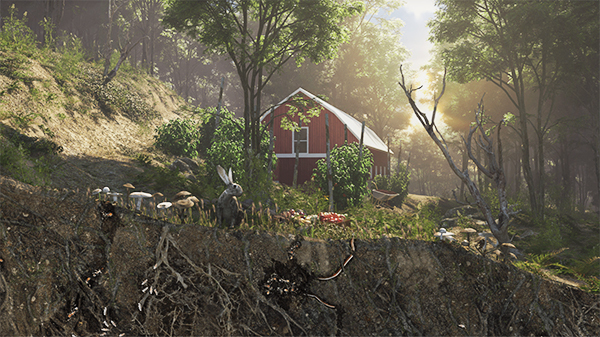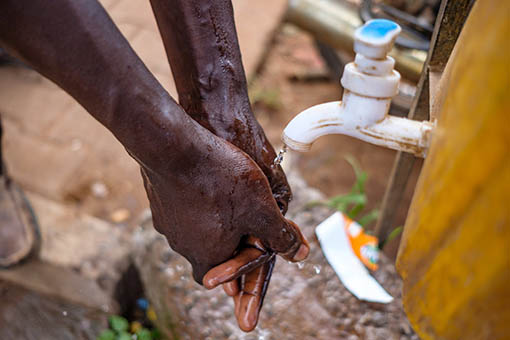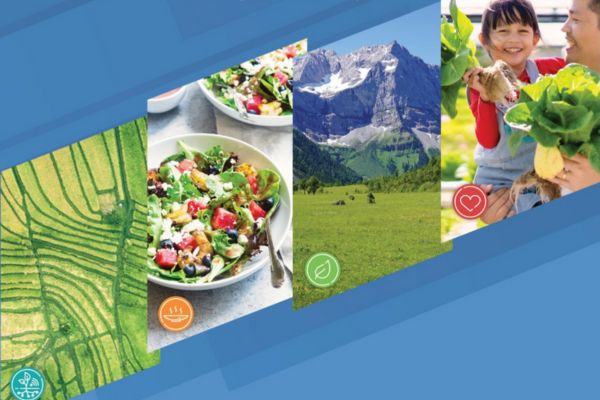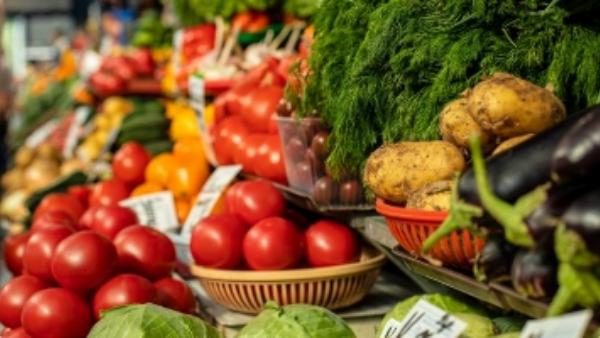Highlights
Director-General

News
FAO Food Price Index dips in May amid lower cereal, sugar and vegetable oil prices
New FAO forecasts point to record global cereal output with a partial rebound in stocks and trade

Story
A holy grail in food colour and food safety
Unique natural blue food colouring from Colombia included in Codex food safety standards.

FAO Director-General honours King Abdullah II of Jordan with the prestigious FAO Agricola Medal
The ceremony took place at the Al Husseiniya Palace in Amman

Interactive story
Enter the hidden world of soils
Explore life belowground: from genes and species to the communities they form.

In Focus
Get to know what undermines sustainable fisheries
Find out how FAO is working to counter illegal fishing and safeguard marine biodiversity.

In Focus
FAO response to global food security challenges
Data analyses, policy recommendations, and actions on the ground.

Publication
World Food Safety Day: science in action!
Browse this collection of publications highlighting FAO’s unique, 360° vision on food safety.
Live
.jpg?sfvrsn=f4cad37a_27)
In Focus
Healthy soils for a healthy life and environment
Find out how the Global Soil Partnership promotes sustainable soil management around the world.

Data
Explore FAO’s global water data platform
AQUASTAT collects and analyses data from around the world to support the sustainable use of water.
Director-General

FAO Director-General honours King Abdullah II of Jordan with the prestigious FAO Agricola Medal
The ceremony took place at the Al Husseiniya Palace in Amman
Join the conversation
Voices of Impact
Foxtail millet: Charles' story
02/06/2025
After receiving training and seeds from the FAO-China-Uganda South-South Cooperation (SSC) project, Charles Swama, a farmer from Butaleja, Uganda, now grows foxtail millet, a drought and disease-resistant crop, which does not require the spraying of chemical pesticides, is higher-yielding and takes just 85 days to harvest.
Video
FAO’s vision for a Blue Transformation
14/11/2023
Imagine a world where aquatic food systems provide sustainable and healthy food and nutrition while conserving biodiversity and safeguarding the environment.
Podcast
FAO Brief – 26 May 2025
26/05/2025
In this episode, FAO calls for immediate humanitarian access to Gaza amid the imminent risk of famine; the number of people experiencing acute food insecurity worldwide increases for the sixth consecutive year; and six agricultural systems in Brazil, China, Mexico and Spain are recognized for their sustainable practices.
Data
FAO Food Price Index 2022-2025
2020 World
31.2%
2010 World
31.5%
In depth

Data
Transparency is key to FAO’s mission
Our new transparency portal shows how and where our resources are used and the results we have achieved. Explore the portal now.

Publication
Medium Term Plan and Programme of Work
The Director-General’s Medium Term Plan 2026-29 and Programme of Work and Budget 2026-27.

In Focus
FAO Data Lab
The FAO Data Lab for Statistical Innovation modernizes the statistical business process, with a specific focus on emergency contexts, when having access to timely information is very important.
FAO and the SDGs
Hover the mouse over an SDG icon for more information
A world free from hunger and malnutrition where food and agriculture contributes to improving the living standards of all

FAO works with governments and partners to empower some of the world’s most marginalized people to end rural poverty.

FAO helps ensure food security by developing ways of growing food that will work in the future so that millions of people don’t go hungry.

Good health starts with nutrition. FAO sets global standards and works with governments and the private sector to ensure food quality and safety throughout the food chain.

FAO invests in educational systems for rural communities and supports improved access to primary education and school meals in order to create equal opportunities for all and chances of lifelong learning.

FAO supports gender equality in the agricultural sector in an effort to raise levels of nutrition in local communities and improve agricultural productivity.

FAO works with governments to ensure water use in agriculture is made more efficient, equitable and environmentally friendly.

FAO promotes the use of renewable energies and works to ensure access to modern energy services across the food chain.

FAO seeks better economic opportunities for all by investing in sustainable agricultural practices and food systems that reduce inequalities and create decent jobs.

FAO seeks to secure a future for rural communities via investments in transportation, irrigation, food storage facilities and communication technologies.

FAO works with countries and partners to generate employment in rural areas, ensure access to natural resources for the most vulnerable and connect farmers to markets.

FAO works to improve urban healthcare, water quality and rethink city region food systems to help deter the negative effects of sprawling urbanisation.

FAO coordinates major global initiatives and projects to tackle food waste and loss, partnering with international organisations, the private sector and civil society.

FAO supports countries in responding to the threats of climate change by providing advice, data and tools for better agricultural policies and practices.

FAO, in partnership with governments and fishing communities, implements best practices in fisheries to ensure our oceans are protected as a means of livelihoods.

FAO promotes sustainable approaches to natural resource management and supports endeavours that promote a balance between conservation and development initiatives.

FAO plays a critical role in peacebuilding, restoring rural livelihoods, building resilience and participatory approaches to policymaking.

FAO acts as a neutral policymaking forum and develops partnerships with all concerned with food and agriculture to ensure a world free from hunger.


















Globally Important Agricultural Heritage Systems.
FAO BLOG
Beating plastic pollution in our food systems
FAO’s global action for World Environment Day 2025



